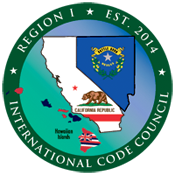In the latest episode of ICC Region I Radio, host Tim Spears sits down with Dr. Lori Moore-Merrell, the U.S. Fire Administrator, to discuss how artificial intelligence (AI) and data analytics are revolutionizing the fire service industry. This insightful conversation delves into the modernization of fire data systems, the transition from NFIRS to NERIS, and the critical role of community risk reduction in enhancing fire prevention strategies.
Embracing Data Analytics in Fire Safety
Data analytics is becoming an indispensable tool in fire safety. Dr. Moore-Merrell emphasizes that understanding and leveraging data is crucial for effective fire administration. The National Emergency Response Information System (NERIS) is set to replace the legacy National Fire Incident Reporting System (NFIRS), offering a more advanced analytics platform. Unlike its predecessor, NERIS is designed to provide actionable intelligence, enabling fire departments to make informed decisions based on real-time data.
The Role of AI in Fire Service Operations
AI in fire service is not just a futuristic concept; it’s a present reality that’s reshaping how fire departments operate. NERIS leverages AI and machine learning to uncover patterns in fire data that might be overlooked by human analysis. This technology aids in improving response times, optimizing resource allocation, and enhancing overall operational efficiency. Dr. Moore-Merrell points out that AI-driven analytics can help identify and mitigate risks more effectively, ultimately saving lives and property.
Community Risk Reduction: A Proactive Approach
Community risk reduction is a key focus for the U.S. Fire Administration. By understanding the specific risks within different communities, fire departments can tailor their prevention and response strategies accordingly. Dr. Moore-Merrell discusses how NERIS will assist in identifying these risks through comprehensive data analysis. The platform will enable departments to engage more effectively with the public, fostering a collaborative environment where communities are active participants in their own safety.
Addressing Lithium-Ion Battery Risks with Advanced Technology
The rise of lithium-ion battery fires presents new challenges for fire safety professionals. These incidents are often misreported due to limitations in legacy data systems like NFIRS. With NERIS, fire departments can accurately code and track these incidents, providing better data for analysis. Dr. Moore-Merrell highlights the importance of understanding this emerging risk and discusses innovative technologies being implemented to address it, including specialized training and updated response protocols.
Leveraging Wildfire Technology for Enhanced Safety
Wildfires are an increasing concern, and advanced technology is playing a vital role in mitigation efforts. The U.S. Fire Administration is investing in AI-enabled wildfire sensors and augmented reality applications like the Wildfire Home Safe app. These tools help in early detection and provide homeowners with actionable steps to reduce fire risks. Dr. Moore-Merrell underscores the necessity of public engagement and technological innovation in combating the growing threat of wildfires.
Listen to the Full Episode
To gain a deeper understanding of how AI and data analytics are transforming the fire service, listen to the full podcast episode with Dr. Lori Moore-Merrell. Hear firsthand about the initiatives being undertaken by the U.S. Fire Administration and how they can impact your work in building and fire safety.
Conclusion
This episode of ICC Region I Radio offers valuable insights into the future of fire safety. The integration of AI in fire service operations, the shift toward data-driven decision-making, and the emphasis on community risk reduction are pivotal developments for professionals in the field. Dr. Moore-Merrell’s expertise sheds light on how embracing these advancements can lead to more effective strategies against emerging fire risks, ultimately enhancing safety for both firefighters and communities.

